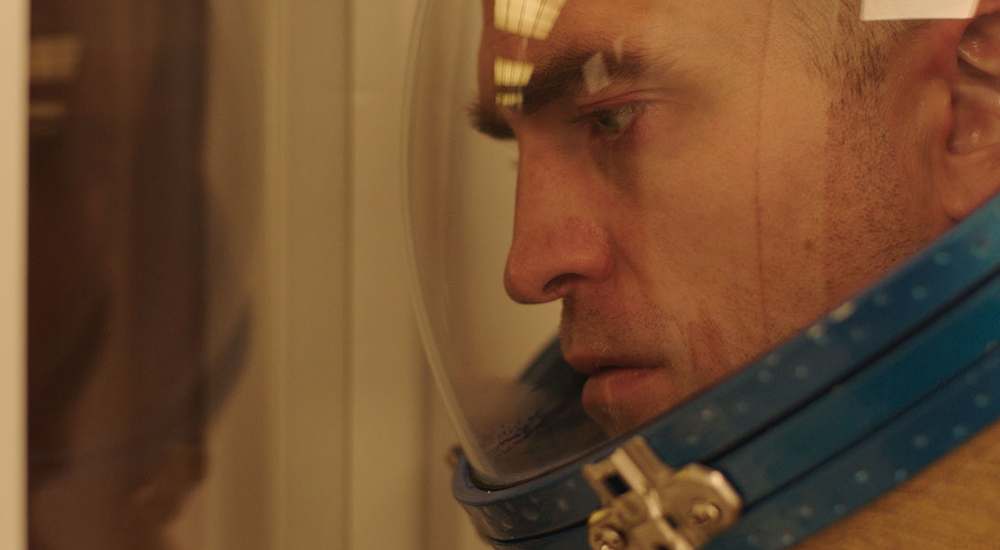“It’s gonna kill me.”
Claire Denis, in her first English language film, takes an enriching plot and squanders the execution, sending High Life back into orbit and giving viewers a painful flight through space that they never wanted.
Enlisting the talents of Robert Pattinson and Juliette Binoche, High Life was meant to be grand. Telling the story of a man and young child, isolated on a spacecraft far outside the galaxy, the film screams potential. However, the presentation never comes together as the high stakes operation that focuses in on a group of criminals heading towards a black hole, falls flat.
Unlike the confined sets, the minimal dialogue lends itself to Denis’ style. A director who is known for veering far outside the bounds of a square box, Denis has a knack for stirring up a conversation, always utilizing her characters to embark on a freeing experience that hardly ever fits the mainstream mold. High Life bears all that weight, and more. Sadly, unlike the workings of Kubrick and Andrei Tarkovsky (both of whose style is present here), this film doesn't win out in the end.
Opening on a distraught Monte (Pattinson), High Time initially appears to present a single man, alone on a spacecraft, working aimlessly to keep both himself and a baby alive. Fast forward and we realize that Monte is not alone, but instead accompanied by an inanimate crew whose lifeless bodies that are piled high in a storage room. Shit hits the fan when he dumps them, sending them spinning into the blackness of outer space.
It is here that the flashbacks begin to surface, filling in the holes that allow us to better understand how we got to the point of isolation. We learn that the group resides in a futuristic detention center where they are free to move about as they wish. The only catch is that they must follow a single rule: the men must donate their sperm and the woman their eggs and bodies, allowing for a series of procreation tests, the results of which are beamed back to mother Earth.
The plot is relatively harsh, but nothing can prepare you for Denis’ presentation as she showcases precisely how the study operates. From the masturbation into cups to a shot of one female character covered in breast milk she cannot feed her child who has been taken away, Denis hones in on the unexpected, capitalizing on shock value and disengaging many of her viewers with her provocative images and lack of sensory.
In her past work, Denis has been praised for her cinematography and vivid shot selection. In High Life, there is something missing. I partially blame the confined set pieces and the lack of character interaction, both of which prevent the arthouse director from utilizing the things that have garnered her so much respect within the industry. However, a large part comes from the story and its incompatible elements.
Stuck within the disappointing film rests two positive: Pattison’s committed performance and a haunting score by composer Stuart A. Staples. Outside of this, High Life is a film that Denis fans will need to watch if only to appreciate her earlier work. This one, unfortunately, is a complete misfire.

